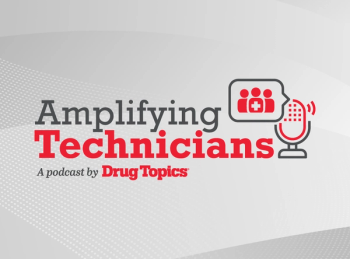
Taking Charge of Your Career: Professional Development Opportunities for Technicians

Most technicians don’t lack skill—they lack a roadmap. You show up. You do the work. You keep the wheels turning. But when it comes to moving forward, the path can feel unclear—or worse, like it’s not meant for you.
Here’s the truth: It is meant for you. Professional development isn’t just for pharmacists or people in management. It’s for every technician who wants more—more impact, more recognition, more say in how care gets delivered.
If you’ve ever felt stuck, overlooked, or uncertain about what’s next, this is your sign: You don’t have to wait for someone to hand you an opportunity.
You can build one.
Let’s break down the ways you can take control of your growth—starting today.
Certifications: More Than Just a Credential
Getting certified isn’t about padding your résumé. It’s about power—power to step into specialized roles, take on more responsibility, and earn the respect that comes with expertise.
Think beyond the basics. Certified Pharmacy Technician (CPhT)? That’s just the start. Advanced certifications are where you start to shape your path.
Sterile compounding opens doors to clean rooms and hospital work. Medication history certifications place you at the front lines of patient safety. Specialized training in billing or diversion prevention puts you in roles where accuracy and oversight are critical. Each step you take isn’t just a new line on your résumé—it’s a move toward mastery.
And technicians who pursue these paths aren’t just recognized more often. They’re relied on more. Trusted more. Promoted more. Because when you deepen your expertise, you elevate the entire team.
CE That Actually Moves You Forward
Let’s be honest—continuing education (CE) can feel like a checkbox. Take the quiz, collect the credit, move on. But if that’s all you’re doing, you’re leaving serious value on the table.
Because CE isn’t just a requirement. It’s a tool. A signal. A way to carve out the version of your career that you want—not just the one you landed in.
When you treat CE as an opportunity—not an obligation—you gain more than knowledge. You gain clarity about where you want to grow. You uncover interests you didn’t know you had. You sharpen the edge that sets you apart from the crowd.
Next time you log in for a course, choose the one that challenges you. The one that stretches you. That’s the kind of learning that actually moves you forward.
Skill Expansion: Build the Technician You Want to Be
You’re not limited to the job description you were handed. In fact, some of the most impactful technicians are the ones who step beyond it—who develop skills in areas that make their teams stronger and their roles more dynamic.
Maybe you’ve noticed you’re great at solving workflow problems or helping new hires get up to speed. That’s leadership potential. Maybe you’ve got a knack for navigating software systems or keeping inventory razor-accurate. That’s operations value. Or maybe you’re curious about where pharmacy and technology intersect—like automation, data entry, or informatics.
The beauty of skill expansion is that it doesn’t require a title change or a formal promotion to begin. It starts with awareness: noticing where your strengths shine, where your interests spark, and where the needs of your environment align with what you enjoy doing. Then it becomes a practice—asking to take on a new task, offering to help troubleshoot a system issue, shadowing someone in a role that intrigues you.
Each time you say yes to something new, you’re not just adding to your toolkit. You’re shaping your identity as a technician with range—someone who doesn’t just do the work but understands it from multiple angles. That kind of technician becomes indispensable. That kind of technician doesn’t just get noticed—they get remembered.
Networking and Mentorship: You’re Not Alone
Professional growth doesn’t happen in a vacuum. No matter how skilled or motivated you are, your next big opportunity often comes from a conversation, a connection, or a bit of guidance from someone who’s walked the path before you.
That’s where networking and mentorship come in.
It’s easy to think of networking as something reserved for corporate jobs or industry conferences. But in pharmacy, it can be as simple as joining a technician association, attending a local training, or introducing yourself to someone whose career you admire. Those moments of connection build a sense of community—and they often lead to unexpected openings, advice, or support when you need it most.
Mentorship, on the other hand, is where real transformation happens. Finding someone who’s been where you are—and made it to where you want to go—can fast-track your learning and help you avoid common missteps. A good mentor doesn’t hand you all the answers. They help you ask better questions, challenge your assumptions, and stay accountable to your own goals.
And when the time comes, becoming a mentor yourself is one of the most powerful ways to solidify your knowledge and give back to the profession.
You’re not meant to navigate your career alone. Surround yourself with people who make you think bigger, reach further, and believe in your potential even on the days you’re not sure it’s there.
Owning the Path: Create a Career, Not Just a Job
There’s a moment in every technician’s journey where something clicks. You stop seeing your role as a series of tasks to complete and start seeing it as a platform to build something bigger. That moment is where real career ownership begins.
Owning your path means stepping out of autopilot. It’s recognizing that no one else gets to define your trajectory but you. It means asking not just “What’s expected of me?” but “What am I capable of contributing?” It’s about being proactive—whether that means volunteering for a new workflow initiative, starting a conversation with your supervisor about growth, or setting clear goals for where you want to be six months or two years from now.
This shift doesn’t require perfect timing, the perfect employer, or even perfect confidence. What it does require is intention. Technicians who take charge of their careers don’t wait for ideal conditions. They make moves even in small ways—reading more, asking better questions, learning from each shift.
And the best part? Owning your career doesn’t just benefit you. It lifts your team. It improves patient care. It signals to others—leaders, peers, patients—that you’re not just doing the job. You’re invested in doing it well, and in shaping what comes next.
You’re Not Waiting for a Promotion—You’re Becoming It
Let’s be clear: promotions don’t make leaders. Mindset does.
Every time you choose to grow, to learn, to show up with more intention than yesterday—you’re already stepping into the next version of your career. You’re becoming the kind of technician who doesn’t just fill a role, but redefines it. Who leads by example. Who lifts the standard for everyone around them.
So if you’ve been waiting—on the right timing, on the right opportunity, on someone to notice—consider this your sign. You don’t have to wait. You get to move. You get to shape your path. You get to own your future.
Because the pharmacy field doesn’t just need more technicians.
It needs more driven, informed, evolving technicians like you.
Newsletter
Pharmacy practice is always changing. Stay ahead of the curve with the Drug Topics newsletter and get the latest drug information, industry trends, and patient care tips.




















